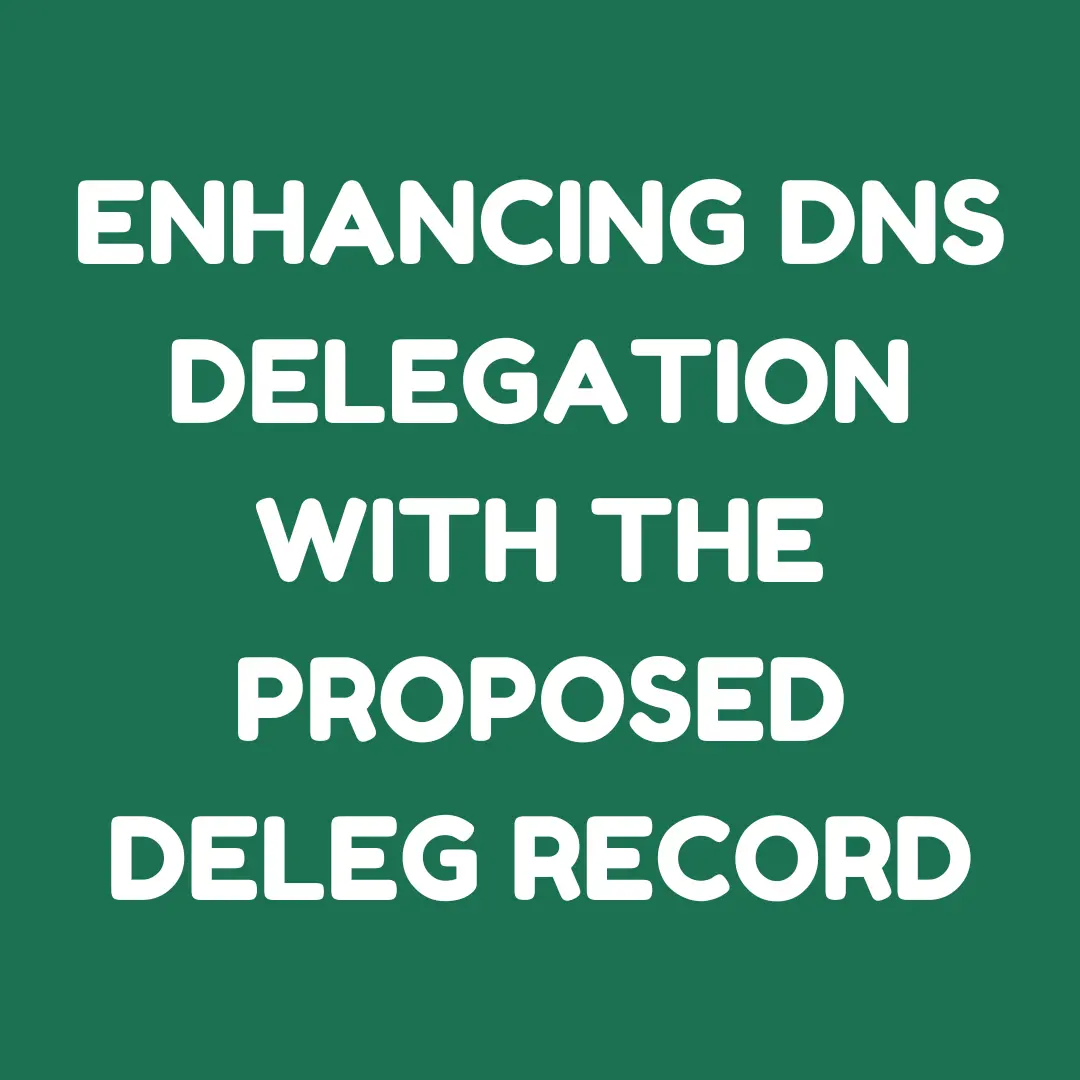Enhancing DNS Delegation with the Proposed DELEG Record

The Domain Name System (DNS) is vital to internet functionality. It translates human-friendly domain names into IP addresses. A key component of DNS is delegation, managed through NS (Name Server) records. However, NS records have limitations, prompting the proposal of a new DELEG record to enhance DNS delegation.
Understanding DNS Delegation
DNS uses a hierarchical structure. Delegation allows a parent zone to assign responsibility for a subdomain to a child zone. This process relies on NS records, which specify the authoritative name servers for the child zone.
Limitations of NS Records
NS records have served DNS for decades but have notable issues:
Lack of DNSSEC Signatures: In the parent zone, NS records are not signed with DNSSEC, making them vulnerable to attacks.
Inconsistent Authority: The child zone is authoritative for NS records, yet resolvers often rely on the parent zone's unsigned NS records during name resolution.
Limited Information: NS records provide only the name server's domain name, lacking details like supported transport protocols or port numbers.
Introducing the DELEG Record
To address these issues, the DELEG record has been proposed. It aims to provide a more secure and informative delegation mechanism.
Key Features of DELEG
Authoritative and Signed: DELEG records reside in the parent zone and are signed with the parent zone's DNSSEC key, enhancing security.
Extensible Information: Beyond specifying name servers, DELEG records can include transport protocols, port numbers, and other relevant data.
Improved Efficiency: By consolidating delegation information, DELEG records can reduce the need for additional queries, speeding up the resolution process.
Benefits of DELEG Implementation
Implementing DELEG records offers several advantages:
Enhanced Security: Signed DELEG records prevent on-path substitution attacks, ensuring the integrity of delegation information.
Support for Modern Protocols: DELEG records can indicate support for encrypted DNS transports like DNS over TLS (DoT) or DNS over HTTPS (DoH), promoting privacy.
Streamlined Operations: With more comprehensive data in a single record, DNS resolvers can operate more efficiently, reducing latency.
Current Status and Future Outlook
As of December 2024, the DELEG proposal is under active discussion within the Internet Engineering Task Force (IETF). The DELEG Working Group is focused on refining the proposal to address existing delegation challenges.
Considerations for Adoption
While DELEG presents clear benefits, transitioning to this new system requires careful planning:
Backward Compatibility: Ensuring that existing DNS infrastructure can interoperate with DELEG records is crucial.
Deployment Strategies: Gradual implementation and thorough testing are necessary to maintain DNS stability during the transition.
Conclusion
The proposed DELEG record represents a significant advancement in DNS delegation, addressing the limitations of traditional NS records. By enhancing security, supporting modern protocols, and improving efficiency, DELEG has the potential to strengthen the foundation of internet infrastructure.
For professionals in DevOps, SRE, AI, and Linux engineering, staying informed about developments like DELEG is essential. As the internet evolves, so too must the tools and protocols that support it.
Enhance your system reliability with Akmatori, an AI-powered SRE assistant that predicts failures, assists in creating more reliable systems, and accelerates root cause analysis during incidents.
